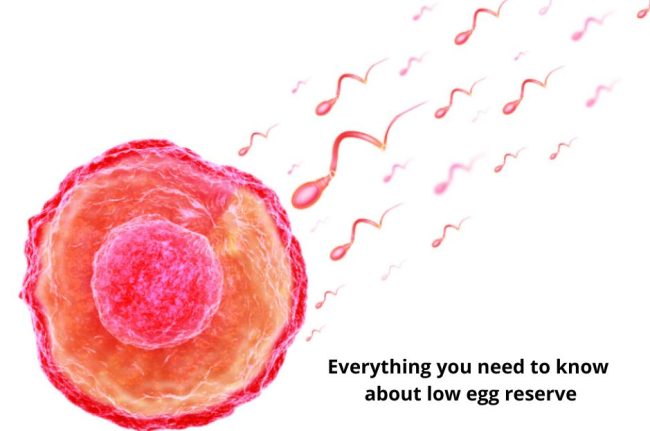What is low egg reserve?
Women take birth with all the eggs that they will ever have. The number is around one million eggs, and by the time she hits puberty, there are around 300,000 eggs in reserve. Throughout their entire reproductive years, women ovulate around 300 to 400 eggs. With age, the supply of viable eggs gradually started dwindling. That is why the older you get the more it becomes difficult to become pregnant.
Aging is mainly responsible for the reducing number of eggs. However, there are other reasons that can affect your egg reserve and lead to untimely low egg availability. These are:
- Endometriosis
- Chemotherapy
- Radiotherapy
- Infections and diseases of the Fallopian tubes
- Previous Ovarian Surgery
- Pelvic infection
- Autoimmune disorder
- Early menopause
- Genetic Abnormalities
- Smoking
- Unexplained Diminished Ovarian Reserve
Symptoms of low egg reserve

The typical symptoms of low egg reserve are the inability to conceive. However, there are some other symptoms that can be the signs of low egg reserve. Such as:
- Amenorrhea or absence of one or two periods (not due pregnancy)
- Menstrual cycle shorter than 21 days
- Heavy periods
- Miscarriage
In case you are experiencing the symptoms and not becoming pregnant even after trying for more than 12 months of unprotected intercourse then you must consult with an expert physician.
Diagnosis of Low egg reserve
Your physician may suspect low egg reserve issue if you have the above mentioned problems along with the lifestyle and your age.
Measuring the hormonal levels, especially the follicle stimulating hormone (FSH) or estradiol and the aniti-Mullerian Hormone (AMH) is important to determine the problem of low egg reserve. That is why; the doctor may draw blood on the third day of the menstrual cycle and test it for diagnosing low egg reserve. Both FSH and AMH are necessary hormones for normal and healthy ovulation.
Your doctor may run the blood test along with the transvaginal ultrasound to observe the number of visible follicles. Higher level of FSH and lower level of AMH than normal are indications of low egg reserve condition.
Treatment for low egg reserve
Low egg reserve is a treatable problem depending on the severity of the issue. Therefore, you should not be disappointed and consult with your physician without any delay. However, there are patients who are borderline with the low egg reserve. For such cases, conventional IVF treatment can be greatly beneficial. If conventional IVF could not help you with successful result then there is the option of mini-IVF treatment protocol.
Those with low egg reserve can choose donor eggs option with IVF. Egg donation is a great way as the eggs are comparatively healthy, free from any risk of chromosomal abnormalities. Both the donor and the recipient remain anonymous. The choice of egg donations enables thousands of patients with low egg reserve to experience a successful pregnancy.
Measures to be taken
Staying healthy is very important if you are facing the issue of low egg reserve. Diet, lifestyle, smoking and drinking habits, exercises, etc. make significant impact on the severity of the problem. You should stop smoking and drinking and other unhealthy substances as well. You can also take certain supplements that are recommended or approved by your doctor.




